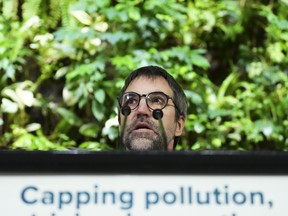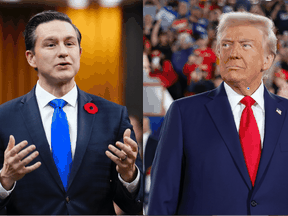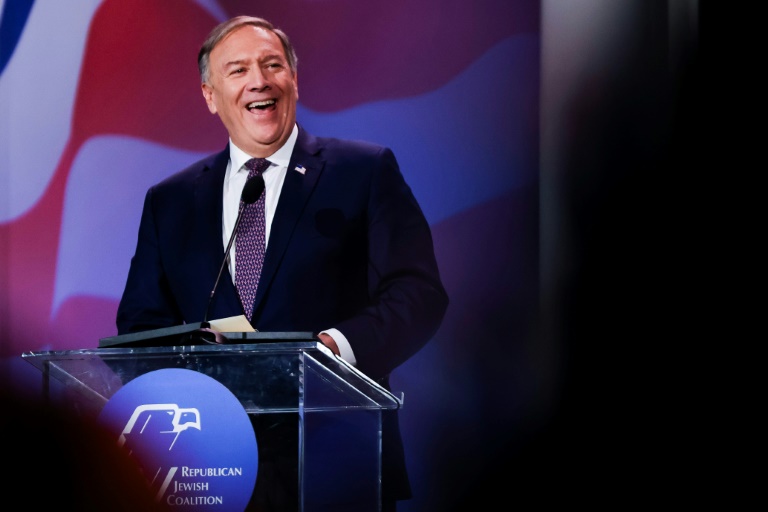A recent report said the cap on the oil and gas sector would cost Canada 112,900 jobs by 2040
Article content
OTTAWA — Federal Environment Minister Steven Guilbeault said on Monday that the oil and gas sector must pull its weight to help Canada get to net zero, while unveiling long-awaited draft regulations capping the sector’s carbon emissions to 35 per cent below 2019 levels by 2030.
“We should all be driving toward the same goal,” said Guilbeault at press briefing near Parliament Hill. “And every sector must do its part.”
Advertisement 2
Article content
“Oil and gas is no exception,” continued Guilbeault, who was flanked by Minister of Natural Resources Jonathan Wilkinson and Edmonton-based Employment Minister Randy Boissonnault.
But elected officials in the industry’s heartland of Western Canada weren’t on board with the appeal to solidarity.
Alberta Premier Danielle Smith released a statement trashing the proposed cap before Guilbeault was even done speaking.
“I’m pissed. I’m absolutely angry because we’ve been working with these guys for two years because we have a plan that would reduce emissions responsibly by 2050,” Smith said at a later press conference in Edmonton. “This is not a responsible policy. He has a deranged vendetta against Alberta. It’s very obvious.”
Shannon Stubbs, the Conservative natural resource critic and MP for Alberta’s Lakeland riding, was similarly incensed.
“How is a first-in-the-world emissions cap on Canadian oil and gas … a higher priority to this current government over more cross-country and export pipelines and LNG development,” asked Stubbs in a social media post.
Article content
Advertisement 3
Article content
Provinces west of Ontario produce some 95 per cent of Canada’s domestic oil and gas, according to the Canadian Association of Petroleum Producers. Alberta alone produces over 80 per cent of Canada’s crude oil and about two-thirds of its natural gas.
A report published by Deloitte in March said that a federal emissions cap on the oil and gas sector would cost Canada 112,900 jobs by 2040, with over half of the job losses hitting Alberta.
Trevor Tombe, a professor of economics at the University of Calgary’s School of Public Policy, said that disproportionate impact on Alberta and the other western provinces is the point.
“(The emissions cap) is a wedge issue that’s going to be especially popular in Quebec,” said Tombe. “And I don’t think the (federal government’s) thinking goes much further than that.”
Recommended from Editorial
Quebec currently shares an emissions trading market with the state of California through the Western Climate Initiative.
The new draft regulations, released on Monday afternoon, bore a close resemblance to a regulatory framework published by the federal government last year. One notable difference is that the new regulations use the term “greenhouse gas pollution” in place of “greenhouse gas emissions.”
Advertisement 4
Article content
A federal official said the term “pollution” might have more meaning and resonance with the average Canadian when asked about the change in terminology at a briefing provided to reporters.
The official reiterated that the cap was not a de facto cap on production, noting that it was technically achievable for industry to expand oil and gas production while reducing emissions.
National Post
rmohamed@postmedia.com
Get more deep-dive National Post political coverage and analysis in your inbox with the Political Hack newsletter, where Ottawa bureau chief Stuart Thomson and political analyst Tasha Kheiriddin get at what’s really going on behind the scenes on Parliament Hill every Wednesday and Friday, exclusively for subscribers. Sign up here.
Our website is the place for the latest breaking news, exclusive scoops, longreads and provocative commentary. Please bookmark nationalpost.com and sign up for our daily newsletter, Posted, here.
Article content








